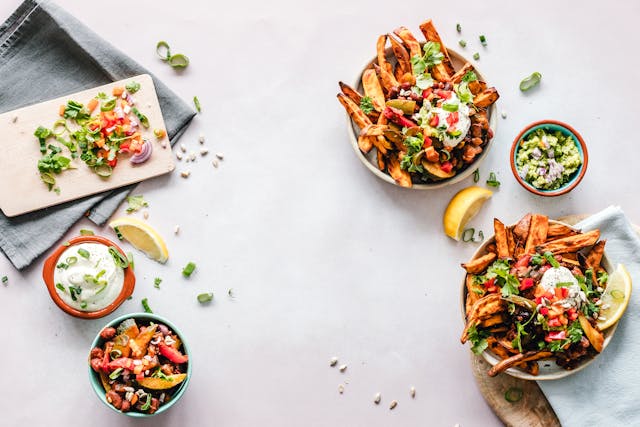Food
Easy Ways to Boost Hydration with Water-Rich Foods
This guide unlocks the secrets of hydration through delicious, water-rich foods. Discover fruits & veggies that keep you healthy, explore meal plans, and learn how to eat your way to a well-hydrated you!
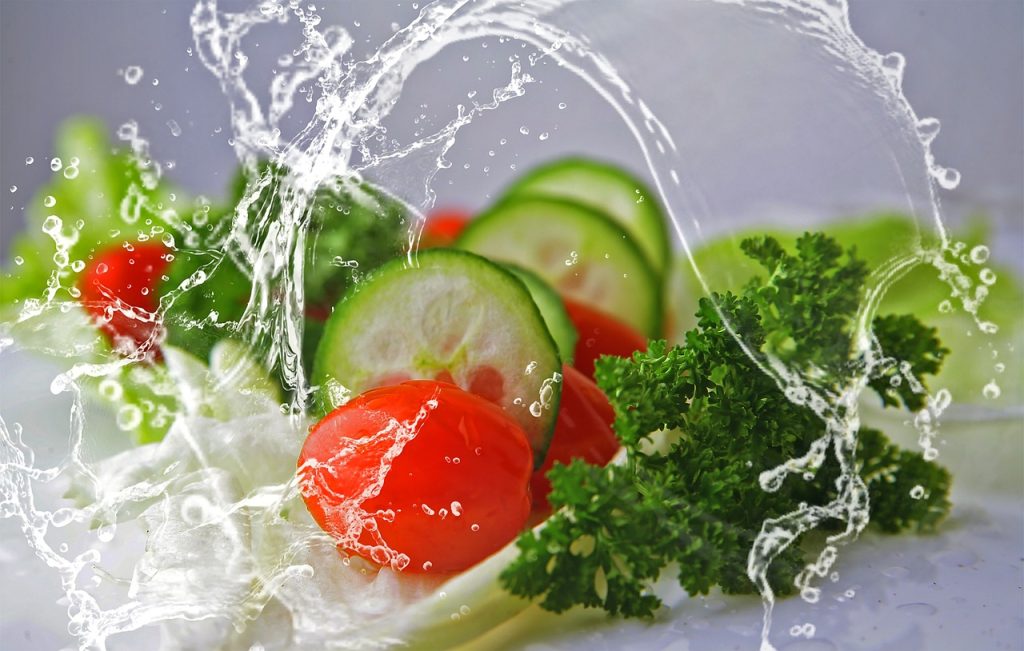
Water – a transparent, tasteless, odorless, and almost colorless chemical substance that is the main constituent of Earth’s streams, lakes, and oceans, and the fluids of most living organisms. The first definition that may come to mind could describe an essential aspect of our planet, but it also underscores a life-sustaining element that’s integral to human health. Hydration isn’t just about the daily consumption of water; it’s about maintaining a delicate balance within our bodies to support a myriad of physiological functions. And surprisingly, many of the foods we eat can be a rich, often overlooked source of this vital element.
In this comprehensive guide, we’re going to unpack the pragmatic and delicious approach of achieving your hydration goals through food – a concept that not only nourishes but rejuvenates from within, delivering benefits that surpass the thirst-quenching properties of a mere glass of water.
Table of Contents
I. Introduction to Hydrating Nutrition
The Hydration Spectrum
We’re familiar with the importance of staying hydrated, especially in the summer heat or after a vigorous workout, but often, the narrative around hydration is confined to a need to about ‘8 cups a day’ of plain H2O. Our relationship with hydration is ready for a paradigm shift, and this deep-dive into water-rich food sources is poised to illuminate the path.
Eating Your Water
But, wait, aren’t fruits just dessert, and veggies just sides to our main meals? Here, we’ll show you how to flip this script and elevate these sources into the refreshingly hydrating heroes of your diet – not just out of convenience but as a strategic move for health and vitality.
II. The Significance of Adequate Hydration
Functions of Water in the Body
Before we explore foods, it’s important to understand the body’s reliance on water, which goes beyond quenching thirst. Each cell, tissue, and organ in your body depends on water to function optimally, serving as a lubricant in digestion, a medium for biochemical reactions, and a shock absorber for the brain and spinal cord.
The Dehydration Dilemma
Dehydration can sneak up on you, leading to dizziness, fatigue, headaches, and in severe cases, even hyperthermia or heat stroke. We’ll tap into how to spot the signs of dehydration and the preventive powers of foods.
The Hydration Complexion
Hydrated skin isn’t just a cosmetic dream – it’s a testament to a well-hydrated body. We’ll uncover how water-rich foods can play a pivotal role in maintaining a radiant and healthy complexion that no amount of topical creams can match.
III. Beyond the Glass: Hydration from Water-Rich Foods
Fruity Oasis and the Vegetable Vanguard
Breaking down the hydrous content of fruits and vegetables, we will highlight the diversity of food-based water sources, showcasing that hydration comes in all colors, shapes, and flavors.
Water Myths Dispelled
We’ll take a moment to rebuke the notion that ‘purer is better’, embracing the knowledge that water from foods is packaged with healthful companions that go beyond hydration.
Continuous Sip: The Long-term Effects
Understanding the benefits of sustained water intake can have a lasting impact, and this section frames the narrative around holistic hydration that’s part of your daily menu.
IV. Nutrient-Packed Hydration Sources
The Power of Plants
Explore the reason why cucumbers are more than just salads, and watermelon is a summertime habit that’s as good for you as it’s delightful. In this section, we delve into the nutritional powerhouse that is water-rich plant-based foods. While cucumbers and watermelon are often enjoyed for their refreshing qualities, they also pack a nutritional punch that goes beyond hydration.
We’ll uncover the abundance of vitamins, minerals, and antioxidants found in these foods, highlighting their role in supporting overall health and well-being. From promoting skin health to aiding digestion, these plant-based hydration sources offer a myriad of benefits that make them essential additions to any diet.
Nutrient Pizzazz
When water carries along vitamins, minerals, and antioxidants, you have a potent elixir in your plate, and we’ll dissect the nutritional profiles of water-imbued fare to support this claim. This section takes a closer look at the nutrient density of water-rich foods and how they contribute to overall health. By examining the nutritional profiles of various fruits, vegetables, and other water-imbued fare, we’ll showcase the abundance of vitamins, minerals, and antioxidants they contain.
From vitamin C in citrus fruits to potassium in bananas, these nutrients play essential roles in supporting immune function, promoting heart health, and combating oxidative stress. By choosing water-rich foods, you can ensure that your hydration efforts are complemented by a wealth of essential nutrients that nourish your body from the inside out.
Balancing Act
Hydration and nutrient intake need not be a trade-off, and we’ll consider how water-rich foods offer a harmonious balance of both, supporting a healthy lifestyle. This section emphasizes the importance of achieving a balance between hydration and nutrient intake for overall health and well-being. While staying hydrated is crucial, it’s equally important to ensure that you’re meeting your body’s nutritional needs.
We’ll explore how water-rich foods offer a unique advantage by providing hydration along with essential nutrients, allowing you to achieve both goals simultaneously. By incorporating a variety of water-rich foods into your diet, you can maintain optimal hydration levels while also nourishing your body with the vitamins, minerals, and antioxidants it needs to thrive.
V. Incorporating Water-Rich Foods into Daily Meals
Morning Dew
Hydration can start at sunrise with breakfast options that ensure your body is fueled and quenched for the day ahead. Begin your day with a hydrating breakfast that sets the tone for optimal hydration. From refreshing fruit smoothies to oatmeal topped with hydrating berries, there are plenty of delicious options to choose from. By starting your morning with hydrating foods, you can kickstart your metabolism and replenish fluids lost overnight, ensuring that your body is well-hydrated and ready to take on the day ahead.
Gardening Your Lunch
Transplant the hearty salad to your mid-day meal, infusing it with more than just leafy greens, but with sustainable hydration as well. Lunchtime provides an opportunity to incorporate water-rich foods into your meal in a satisfying and nutritious way. Build a colorful salad filled with hydrating ingredients like cucumbers, tomatoes, and bell peppers, and top it with a protein source such as grilled chicken or tofu. Pair your salad with a hydrating beverage like infused water or herbal tea to complete the meal and ensure optimal hydration throughout the afternoon.
A Feast of Fluids
Transform your evening dinner into an event that’s not just about the meal itself but a full-on hydration strategy ingeniously masquerading as a scrumptious dinner plan. Dinner is the perfect time to enjoy a variety of water-rich foods while indulging in a delicious and satisfying meal. Incorporate hydrating ingredients into your dinner recipes, such as soups made with broth-based vegetables, grilled fish served with a side of steamed vegetables, or stir-fries loaded with colorful veggies. By focusing on hydration during dinner, you can nourish your body while enjoying a flavorful and fulfilling dining experience.
VI. Seasonal and Local Water-Rich Choices
The Dynamic of the Seasons
From the fresh, splashy harvest of summer to the hearty produce of winter, each season offers its own bounty that complements the body’s hydration requirements. Embrace the seasonal bounty of fruits and vegetables by incorporating locally sourced and in-season produce into your meals. In the summer, enjoy juicy watermelon, refreshing cucumbers, and hydrating berries, while in the winter, savor hearty vegetables like squash, carrots, and leafy greens. By aligning your diet with the seasons, you can take advantage of the freshest and most hydrating ingredients available while supporting local farmers and reducing your carbon footprint.
Community Cup
Elevate the conversation around local produce as not just a trend but a tributary to the local ecosystem and your personal wellbeing. Engage with your local community and support small-scale farmers by purchasing locally sourced fruits and vegetables. Not only does buying local produce reduce the environmental impact of transportation, but it also ensures that you’re getting the freshest and most nutritious ingredients available.
Join community-supported agriculture (CSA) programs, visit farmers’ markets, or participate in community gardening initiatives to connect with your local food system and contribute to the health and vitality of your community.
The Recipe for the Right Season
Offering recipes that blend seasonal ingredients with hydration in mind, we pave the way for culinary mastery that echoes with the pulse of nature. Explore seasonal recipes that highlight the best of each season’s produce while prioritizing hydration. From refreshing salads and chilled soups in the summer to hearty stews and roasted vegetables in the winter, there are endless possibilities for incorporating water-rich foods into your meals.
Experiment with different flavor combinations, cooking techniques, and culinary traditions to create dishes that not only nourish your body but also celebrate the vibrant flavors of each season. With the right recipes and ingredients, you can enjoy delicious and hydrating meals that align with the natural rhythms of the Earth.
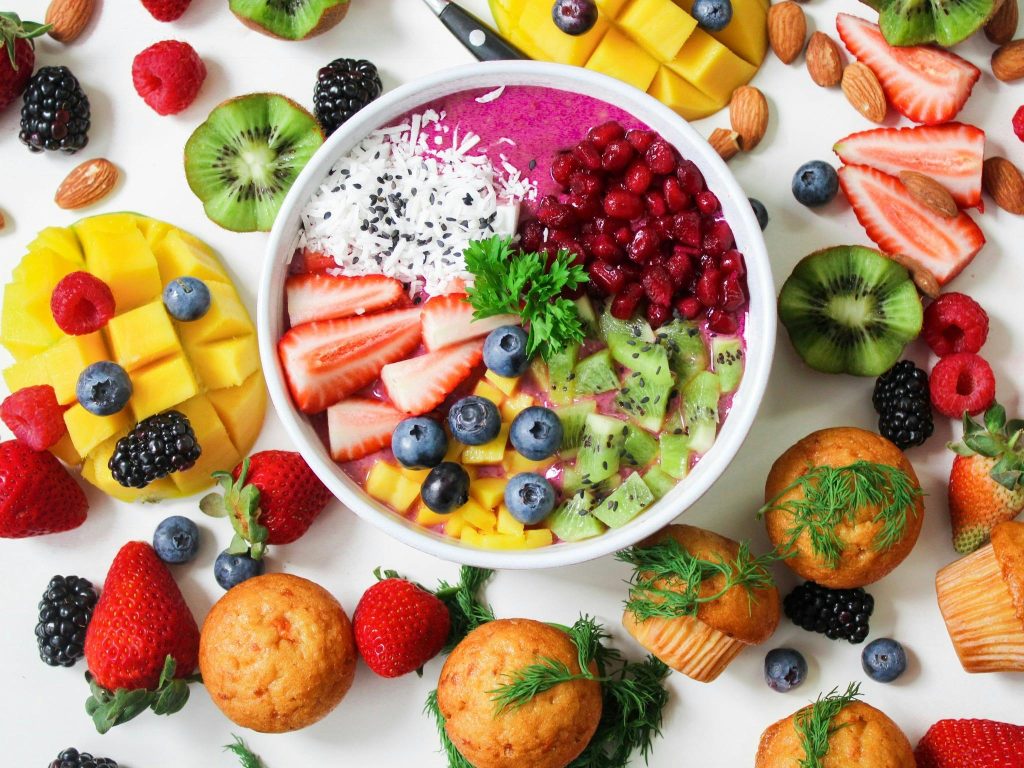
VII. The Role of Water-Rich Foods in Weight Management
Satiety in Sips
Water-rich foods can be a strategic move in your weight management plan, with their ability to keep you full longer without packing on unnecessary calories. By incorporating foods with high water content into your diet, you can increase satiety and reduce overall calorie intake. These foods, such as fruits, vegetables, and broth-based soups, have a low energy density, meaning they provide fewer calories per gram compared to high-calorie foods. This allows you to consume larger portions of water-rich foods while still maintaining a calorie deficit for weight loss.
Balancing the Scale
We’ll explore how to make water-rich foods a core part of a weight management plan that’s as sustainable as it is satisfying. Achieving and maintaining a healthy weight requires a balanced approach that includes regular physical activity, mindful eating habits, and a focus on nutrient-rich foods.
Water-rich foods play a crucial role in this equation by providing hydration, essential nutrients, and dietary fiber to support weight management goals. By incorporating a variety of fruits, vegetables, and other water-rich foods into your meals and snacks, you can create a satisfying and sustainable eating plan that promotes weight loss or maintenance.
The Hydration-Metabolism Nexus
Does hydration affect your metabolism? Absolutely. We’ll show you how, and how to use this knowledge to your benefit. Hydration plays a significant role in metabolism, with even mild dehydration negatively impacting metabolic function. By staying adequately hydrated, you can support optimal metabolic rate and energy expenditure, helping to promote weight loss and prevent weight gain.
VIII. Hydration for Physical Performance
The Workout Refuel
Your gym bag might have a bottle of water, but it should also have the know-how of which foods can turbocharge your workout and recovery. Proper hydration is essential for optimal physical performance, especially during exercise. In this section, we’ll highlight the importance of hydrating before, during, and after workouts to fuel your body and support recovery. We’ll also discuss which foods can help replenish electrolytes and provide sustained energy during prolonged exercise sessions.
Electrolytic Eats
For the more spirited activities, we’ll guide you to the deliciously charged territory of electrolyte-rich eating that beans and bananas offer. Electrolytes play a crucial role in maintaining fluid balance, nerve function, and muscle contractions during exercise. In this section, we’ll explore the importance of electrolytes for physical performance and provide tips for incorporating electrolyte-rich foods into your diet. From bananas and beans to leafy greens and nuts, there are plenty of delicious options to help replenish electrolytes and support optimal hydration during intense workouts.
Crafting Energy with Edibles
Fine-tune your pre and post-workout meal plan, using food as your hydration vehicle for peak physical performance. In addition to staying hydrated, fueling your body with the right nutrients before and after exercise is essential for maximizing performance and recovery. We’ll discuss the importance of pre-workout fueling to provide energy and enhance endurance, as well as post-workout nutrition to support muscle repair and recovery. By crafting balanced meals and snacks that prioritize hydration and nutrient intake, you can optimize your physical performance and achieve your fitness goals more effectively.
IX. Hydration for Specific Health Goals
Liquid Heart
How do water-rich foods contribute to heart health? We’ll examine ways to use them as a central figure in a cardio-conscious diet. Maintaining adequate hydration is crucial for heart health, as dehydration can strain the cardiovascular system and increase the risk of heart disease. In this section, we’ll explore how water-rich foods can support heart health by providing essential nutrients like potassium, magnesium, and antioxidants.
The Digest on Hydration and Gut Health
Gut feelings about healthy foods are about to be validated, as we review the evidence linking hydration to a happy gut. Adequate hydration is essential for maintaining a healthy digestive system, as water helps transport nutrients, regulate bowel movements, and support the growth of beneficial gut bacteria. In this section, we’ll explore the connection between hydration and gut health, discussing how water-rich foods can promote proper digestion and alleviate symptoms of gastrointestinal disorders.
The Immunity Juice
Discover how foods that hydrate can do double duty by also boosting your immune defenses. Proper hydration is crucial for supporting immune function, as water helps transport immune cells throughout the body and facilitates the elimination of toxins and pathogens. In this section, we’ll explore the immune-boosting properties of water-rich foods, such as fruits, vegetables, and herbal teas. We’ll also discuss the importance of hydration for preventing dehydration-related immune suppression and supporting the body’s ability to fight off infections and illnesses.
X. Hydration and Mental Well-Being
The Brain Bath
Cerebral health gets an infusion from water-rich foods, with improved focus and mood on the menu. When it comes to mental well-being, hydration plays a crucial role in maintaining optimal brain function. Just as our bodies require hydration to function efficiently, our brains also rely on adequate water intake to perform cognitive tasks effectively.
Water-rich foods, such as fruits and vegetables, provide hydration along with essential nutrients that support brain health. By incorporating these foods into your diet, you can give your brain the “bath” it needs to thrive, promoting better focus, mood, and overall cognitive function.
The Hydrated Mind
Our narrative explores the mechanisms that can elevate mental clarity and acuity, courtesy of your hydration strategy. Hydration is not only essential for physical health but also for mental well-being. Research suggests that even mild dehydration can impair cognitive function, leading to decreased focus, memory, and mood. By staying properly hydrated, you can support optimal brain function, promoting sharper thinking, improved mood stability, and enhanced overall mental clarity. With a hydrated mind, you can tackle tasks with greater efficiency, creativity, and resilience, enabling you to thrive in both work and personal pursuits.
Cognition Potion Recipes
From the morning smoothie to a brain-boosting dinner, we’ll serve you recipes that think ahead of the curve. To support cognitive function and mental well-being, we’ve curated a collection of “cognition potion” recipes designed to nourish your brain from breakfast to dinner. These recipes feature nutrient-dense ingredients known for their brain-boosting properties, such as antioxidants, omega-3 fatty acids, and vitamins B and E.
From a berry-packed smoothie to a salmon and avocado salad, each dish is crafted with ingredients carefully selected to fuel your brain and promote optimal cognitive performance. With these recipes in your culinary arsenal, you can proactively support your brain health while indulging in delicious and satisfying meals.
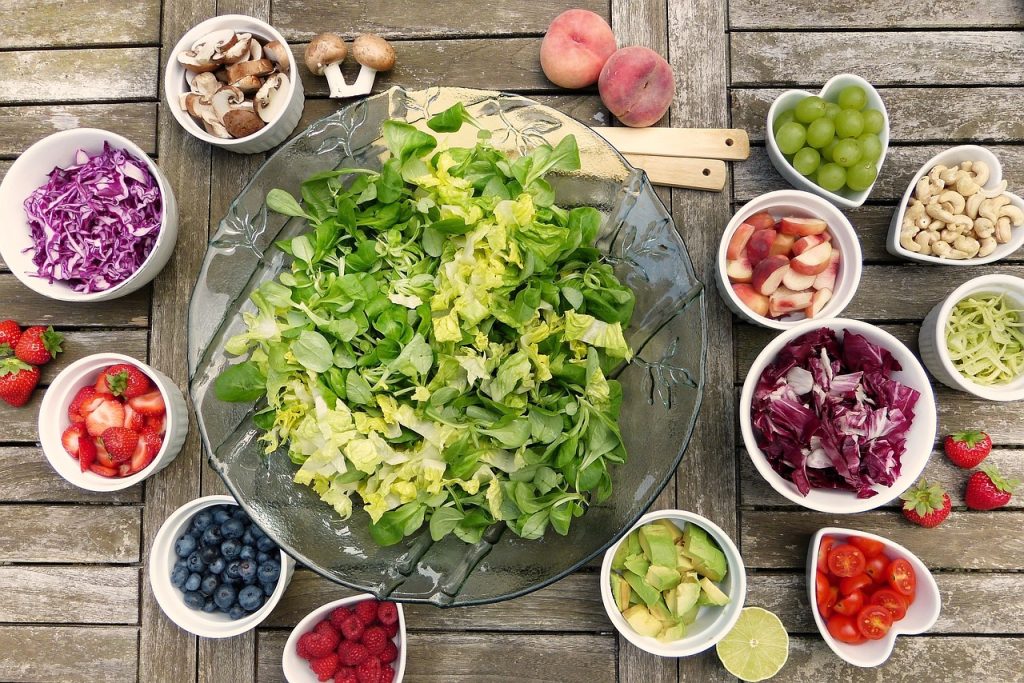
XI. Creative Hydration Recipes and Meal Ideas
- Refreshing Cucumber Gazpacho:
- Blend together cucumbers, tomatoes, bell peppers, onions, garlic, and a splash of vegetable broth until smooth.
- Season with salt, pepper, and a hint of lime juice.
- Chill in the refrigerator for at least an hour before serving. Garnish with fresh herbs and diced cucumbers.
- Watermelon and Feta Salad:
- Combine cubed watermelon, crumbled feta cheese, thinly sliced red onions, and fresh mint leaves in a bowl.
- Drizzle with balsamic glaze and a squeeze of lime juice.
- Toss gently to combine and serve chilled as a refreshing side dish or light meal.
- Hydrating Green Smoothie Bowl:
- Blend together spinach, kale, cucumber, banana, avocado, and coconut water until smooth.
- Pour the smoothie into a bowl and top with sliced kiwi, berries, shredded coconut, and granola for added texture and flavor.
- Citrus Infused Quinoa Salad:
- Cook quinoa in step with bundle commands and permit it cool.
- Toss the cooked quinoa with segments of oranges, grapefruits, and pomegranate seeds.
- Add chopped fresh herbs like parsley and mint, and drizzle with a citrus vinaigrette made with lemon juice, olive oil, honey, and Dijon mustard.
- Mango Coconut Chia Pudding:
- Mix chia seeds with coconut milk and diced mangoes in a bowl.
- Let the mixture sit in the refrigerator for at least 4 hours or overnight to thicken.
- Serve the chilled pudding topped with additional mango slices, toasted coconut flakes, and a sprinkle of cinnamon.
- Hydrating Buddha Bowl:
- Start with a base of cooked quinoa or brown rice.
- Add a variety of water-rich vegetables such as cucumbers, cherry tomatoes, bell peppers, and radishes.
- Top with protein sources like grilled chicken, tofu, or chickpeas.
- Drizzle with a tahini dressing made with lemon juice, garlic, tahini, and water to thin it out.
- Coconut Water Smoothie:
- Blend together coconut water, frozen pineapple chunks, banana, and a handful of spinach until smooth.
- Optional: Add a scoop of protein powder or Greek yogurt for added protein.
- Pour into a glass and enjoy as a hydrating and nutritious snack or meal replacement.
XII. 10 Water-Rich Foods for Stay Hydrated
- Cucumber:
With a water content of over 95%, cucumbers are not only refreshing but also highly hydrating. They are versatile and can be enjoyed in salads, sandwiches, or as a crunchy snack. - Watermelon:
True to its name, watermelon is packed with water, making it an excellent choice for staying hydrated. It’s also rich in vitamins A and C, as well as antioxidants. - Strawberries:
These juicy berries are not only delicious but also contain about 91% water. Enjoy them on their own, mixed into yogurt or oatmeal, or blended into smoothies. - Lettuce:
Crisp and refreshing lettuce varieties like iceberg and romaine are composed of over 95% water. Use them as the base for salads, wraps, or sandwiches. - Celery:
With a water content of around 95%, celery is a hydrating vegetable that’s also low in calories. Enjoy it as a snack with peanut butter, or add it to soups, stir-fries, or salads for extra crunch. - Bell Peppers:
Vibrant and crunchy bell peppers contain about 92% water. They are also rich in vitamin C and antioxidants, making them a nutritious addition to salads, stir-fries, or vegetable trays. - Oranges:
Juicy and citrusy oranges are not only a good source of vitamin C but also contain about 87% water. Enjoy them as a refreshing snack or incorporate them into fruit salads or smoothies. - Pineapple:
Sweet and tropical pineapple contains around 86% water, along with bromelain, an enzyme that may have anti-inflammatory properties. Enjoy it fresh, grilled, or blended into smoothies or fruit salsa. - Tomatoes:
Ripe tomatoes are composed of about 94% water and are also rich in vitamins A and C, as well as lycopene, an antioxidant associated with various health benefits. Use them in salads, sandwiches, or pasta dishes. - Cabbage:
Crunchy and hydrating cabbage varieties like green and red cabbage contain around 92% water. Enjoy them shredded in salads, coleslaw, wraps, or stir-fries.
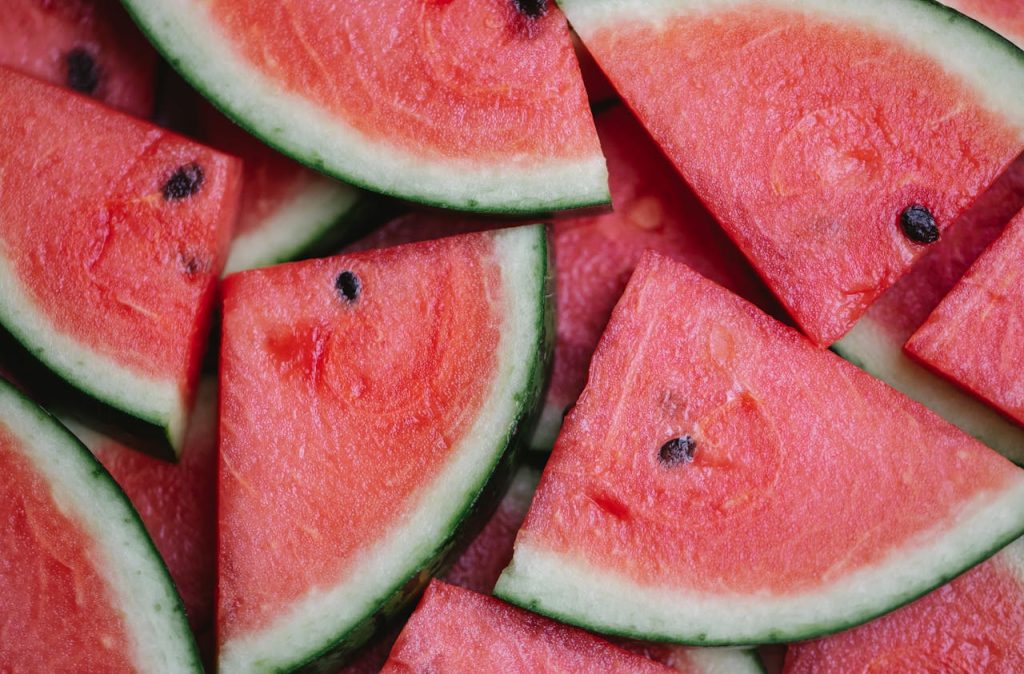
XIII. Hydration Challenges and Solutions
When Appetite and Thirst Duel
How do you maintain hydration when snack attacks hit? We’ll arm you with snacks that not only silence hunger but also hydrate. When hunger strikes between meals, it can be tempting to reach for high-calorie, low-nutrient snacks that provide little hydration. However, we have solutions to ensure that your snacks not only satisfy your appetite but also contribute to your hydration goals.
A variety of hydrating snacks, such as water-rich fruits like watermelon and oranges, crunchy vegetables like cucumber and celery, and hydrating options like yogurt and smoothies. These snacks not only help quench your thirst but also provide essential nutrients to keep you energized and satisfied between meals.
Overcoming the Busy Barrier
Life can be a blitz, but we’ll show you how to have hydration on the go, even in the most hectic of schedules. In today’s fast-paced world, finding time to prioritize hydration amidst a busy schedule can be challenging. However, we have strategies to help you stay hydrated, even when life gets hectic.
Incorporating hydration into your daily routine, such as carrying a reusable water bottle with you wherever you go, setting reminders to drink water throughout the day, and opting for portable hydrating options like coconut water or infused water. With these simple yet effective solutions, you can ensure that hydration remains a priority, no matter how busy your day may be.
The Flavor of Hydration
Promoting hydrating variety isn’t just about the body; it’s about the palate too. We’ll share tips on keeping your hydration routine fresh, vibrant, and tasty. While staying hydrated is essential for overall health, it’s also important to enjoy the process. We’ll show you how to infuse flavor into your hydration routine, making it more enjoyable and satisfying. From adding fresh herbs and citrus slices to your water to experimenting with different flavored waters and herbal teas, there are countless ways to make hydration more flavorful. By incorporating variety and creativity into your hydration routine, you can keep it fresh, vibrant, and tasty, ensuring that you stay motivated to meet your hydration goals every day.
XIV. Personalized Hydration Plans
The Hydration Calculator
Discovering your hydration needs isn’t just a formula; it’s a fluid conversation about your individual context. While general recommendations for daily water intake exist, determining your specific hydration needs requires consideration of various factors unique to you. Our hydration calculator takes into account factors such as your age, weight, activity level, climate, and overall health status to provide personalized guidance on how much water you should be consuming daily. By entering relevant information into the calculator, you can gain valuable insights into your hydration requirements and make informed decisions about your fluid intake.
The Life-Stage Hydrator
Hydration isn’t one-size-fits-all, and we’ll delineate how life stages demand a tailored approach to staying water-wise with food. As we progress through different stages of life, our hydration needs evolve to accommodate changes in metabolism, activity levels, and physiological functions. From infancy to old age, each life stage presents unique challenges and considerations when it comes to hydration. We’ll explore how hydration requirements vary across different life stages and provide practical tips and strategies for staying hydrated at every age. Whether you’re a growing child, a busy adult, or a senior citizen, we’ll help you navigate the intricacies of hydration to support optimal health and well-being.
The Family Hydration Pact
From elders to the younglings, family-wide hydration can be a shared goal that binds the household in a healthy pact. Hydration is not only an individual endeavor but also a collective effort that can unite families in a shared commitment to health and wellness. Our family hydration pact encourages households to prioritize hydration as a family-wide goal, fostering a supportive environment where everyone can thrive. By setting common hydration goals, establishing healthy hydration habits, and encouraging open communication about hydration needs, families can work together to ensure that everyone stays adequately hydrated. From elders to the youngest members, each family member plays a vital role in upholding the family hydration pact and contributing to a culture of wellness within the household.
XV. Success Stories and Transformations
From Thirsty to Thriving
Real-life examples of those who have fully embraced the hydrating power of foods, and reaped the rewards of improved health. This section features inspiring stories of individuals who have experienced remarkable transformations by incorporating water-rich foods into their diets. From overcoming chronic dehydration to achieving vibrant health and vitality, these success stories highlight the profound impact that hydration can have on overall well-being.
Readers will gain insight into the challenges faced by these individuals, the strategies they implemented to improve their hydration habits, and the tangible benefits they experienced as a result. Whether it’s increased energy, clearer skin, or improved mental clarity, these stories serve as powerful reminders of the transformative power of hydration.
The Ripple Effect of Hydration
Small changes lead to significant transformations, and we’ll spotlight these changes, from energy levels to skin glow, that often begin with a simple switch in hydration strategy. In this section, we explore the ripple effect that hydration can have on various aspects of health and well-being. By making small adjustments to your hydration routine, such as increasing water intake or choosing water-rich foods, you can set off a chain reaction of positive changes throughout your body. From enhanced energy levels and improved mood to radiant skin and better digestion, the benefits of proper hydration extend far beyond quenching your thirst.
Through real-life testimonials and expert insights, we’ll illustrate how prioritizing hydration can lead to a cascade of improvements in both physical and mental health.
Achieving Work-Lifestyle-Health Balance
Success isn’t just about peak performance; it’s about enduring energy levels and a radiant sense of wellbeing that hydration can sustain. This section explores the critical role that hydration plays in achieving a balanced and fulfilling life. By maintaining optimal hydration levels, you can support your body’s ability to cope with the demands of work, lifestyle, and health.
From staying hydrated during long workdays to fueling your workouts with water-rich foods, we’ll show you how hydration can be a cornerstone of overall well-being. By achieving a harmonious balance between work, lifestyle, and health, you can enjoy enduring energy levels and a radiant sense of well-being that hydration helps sustain.
XVI. Conclusion: The Unfolding of Water-Rich Wellness
In conclusion, our exploration has unfolded a tapestry where hydration is interwoven with the fabric of everyday nourishment. It’s a story that’s rich in visuals, mouthwatering in flavor, and vital to sustaining the beauty of health. From the ripest fruits to the greenest veggies, we’ve witnessed how these natural hydration gems can be polished and implemented in our daily lives to ensure a more vibrant, healthier self.
This isn’t just an assortment of chapters in a digital compendium; it’s a roadmap for a lifetime of watery wellness, where every bite isn’t just a culinary delight but a sip into the elixir of life.
For everyone peering into this watery world, whether you’re an avid health enthusiast, a wellness warrior, or simply on a quest for better nutrition, the message is clear: It’s time to rethink hydration, one bite at a time.
FAQs
What is Hydration?
Hydration involves replenishing lost fluids, notably water, within a system. The concept of hydration commonly refers to restoring water levels in the human body that have diminished, typically through drinking. Being well-hydrated signifies an ample water content in the body. Conversely, dehydration entails the removal or insufficient supply of water.
Why is hydration important?
Ensuring sufficient daily water intake holds critical importance for various bodily functions: regulating body temperature, maintaining joint lubrication, bolstering immunity, facilitating nutrient delivery to cells, and sustaining organ health. Adequate hydration also enhances sleep quality, cognitive function, and mood.
Health experts advise consuming approximately 11 cups of water daily for women and 16 for men. Moreover, hydration can derive from sources beyond plain water, such as fruit-infused water or beverages like coffee and tea.
However, experts caution against sugar-laden drinks for hydration. Walter Willett, a professor at Harvard T.H. Chan School of Public Health, highlights concerns about the excessive sugar content in many beverages, which can negatively impact health and hydration levels.
Food
Healthy Rice Varieties: Nutrition and Health Benefits
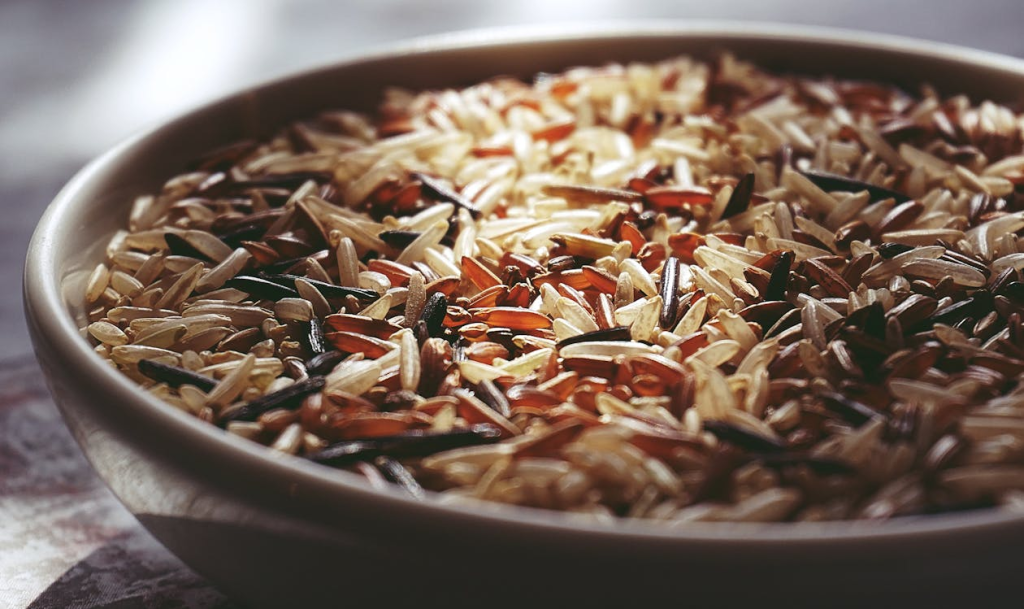
Rice is a staple food for over half the world’s population, offering versatility and a rich nutritional profile. While white rice is commonly consumed, exploring other rice varieties can provide additional health benefits. This comprehensive guide delves into five healthy rice options—brown, black, red, purple, and wild rice—highlighting their unique nutritional advantages and how to incorporate them into your diet.
Nutritional Overview of Rice
Rice is primarily composed of carbohydrates, making it an excellent energy source. It also contains varying amounts of protein, fiber, vitamins, and minerals, depending on the type.
Brown Rice
Brown rice is a whole grain that retains its bran and germ, providing more fiber, B vitamins, and minerals compared to white rice. It’s linked to improved blood glucose control, heart health, and weight management. However, brown rice may contain higher levels of arsenic due to its intact outer layer. To reduce arsenic exposure, rinse brown rice thoroughly and cook it with a higher water-to-rice ratio.
White Rice
White rice undergoes milling and polishing, removing the bran and germ. This process results in a softer texture and longer shelf life but reduces fiber and nutrient content. Enriched white rice has some nutrients added back, such as iron and B vitamins, but it still lacks the fiber found in whole grains. White rice can be part of a healthy diet when consumed in moderation and paired with nutrient-rich foods.
Black Rice
Black rice, also known as forbidden rice, is rich in anthocyanins—antioxidants that may aid in blood glucose control and cardiovascular health. Its deep color and nutty flavor make it a nutritious and visually appealing addition to various dishes.
Red Rice
Red rice is another whole grain variety high in anthocyanins, offering antioxidant benefits. It has a nutty flavor and is commonly consumed in various countries. Red rice can be a nutritious alternative to white rice in many recipes.
Wild Rice
Wild rice is technically an aquatic grass seed, not a true rice. It’s high in protein and resistant starch, which can benefit blood sugar management. Wild rice’s chewy texture and earthy flavor make it a unique addition to salads, soups, and pilafs.
Health Benefits of Rice
Energy Source
Rice is a rich source of carbohydrates, providing the body with energy necessary for daily activities. It’s particularly beneficial for athletes and individuals with high energy demands.
Digestive Health
Whole grain varieties like brown, black, red, and wild rice are high in fiber, which aids in digestion and promotes a healthy gut microbiome. Fiber also contributes to satiety, helping with weight management.
Heart Health
The fiber, antioxidants, and magnesium found in whole grain rice varieties support heart health by reducing cholesterol levels and improving blood pressure.
Blood Sugar Control
Whole grain rice has a lower glycemic index compared to white rice, leading to slower digestion and a more gradual rise in blood sugar levels. This makes it a better choice for individuals managing diabetes.
Understanding Arsenic in Rice
Arsenic is a naturally occurring element that can be found in rice, with brown rice containing higher levels due to its outer layers. To minimize arsenic exposure:
- Rinse rice thoroughly before cooking.
- Use a higher water-to-rice ratio (e.g., 6:1) and drain excess water.
- Choose rice grown in regions with lower arsenic levels, such as California.
Incorporating Healthy Rice Varieties into Your Diet
To maximize the health benefits of rice:
- Pair rice with vegetables, lean proteins, and healthy fats.
- Experiment with different rice varieties to add diversity to your meals.
- Consider cooling cooked rice before consumption to increase resistant starch content, which can support gut health.
Conclusion
Exploring various rice types can enhance your diet’s nutritional value and flavor. By understanding the benefits of brown, black, red, purple, and wild rice, and implementing proper cooking methods to reduce arsenic exposure, you can enjoy rice as a healthy and delicious staple in your meals.
Note: This article is for informational purposes only and does not constitute medical advice.
Food
Top 7 Magnesium-Rich Nuts and the Best Ways to Eat Them for Maximum Health Benefits

Magnesium is one of the most essential yet often overlooked minerals in the human diet. Responsible for over 300 bodily functions, it supports muscle performance, nerve function, energy production, and bone health. Luckily, nature has given us a delicious way to keep our magnesium levels up—nuts.
In this article, we dive deep into 7 of the best magnesium-rich nuts, their individual health perks, and the smartest ways to include them in your daily routine for optimum results.
Why Is Magnesium So Important?
Magnesium helps regulate blood pressure, supports heart rhythm, balances blood sugar, and even plays a role in mood regulation. Despite its importance, studies suggest that up to 70% of people are magnesium-deficient.
Daily Recommended Magnesium Intake:
- Men (31+ years): 420 mg/day
- Women (31+ years): 320 mg/day
Let’s explore how magnesium-rich nuts can help you reach these targets naturally.

1. 🥜 Almonds: A Powerhouse of Nutrients
Magnesium: 270 mg per 100 grams
Almonds are loaded with vitamin E, protein, fiber, and monounsaturated fats. Their high magnesium content supports heart health, brain function, and blood sugar control.
Best Ways to Eat Almonds:
- Soak overnight for better absorption
- Add to smoothies, oatmeal, or yogurt
- Use almond butter in wraps or toast
Note: Choose raw or dry-roasted almonds over salted versions to avoid excess sodium.

2. 🌰 Cashews: Creamy, Versatile, and Rich in Magnesium
Magnesium: 260 mg per 100 grams
Cashews not only taste great but also provide healthy fats, copper, and zinc. They support bone health, immunity, and weight management.
Smart Ways to Consume:
- Eat raw or make creamy cashew sauces
- Add to curries or vegan desserts
- Include in trail mixes
Tip: Limit intake if you’re prone to kidney stones due to oxalate content.

3. 🥥 Brazil Nuts: Magnesium + Selenium Magic
Magnesium: 376 mg per 100 grams
Brazil nuts are the ultimate combo of magnesium and selenium. They support thyroid function, reduce inflammation, and boost immunity.
Best Consumption Tips:
- Eat 1–2 nuts daily (enough selenium for the day!)
- Chop into granola or snack mixes
- Mix with dark chocolate for an antioxidant-rich dessert
Warning: Don’t overeat – too much selenium can be harmful.
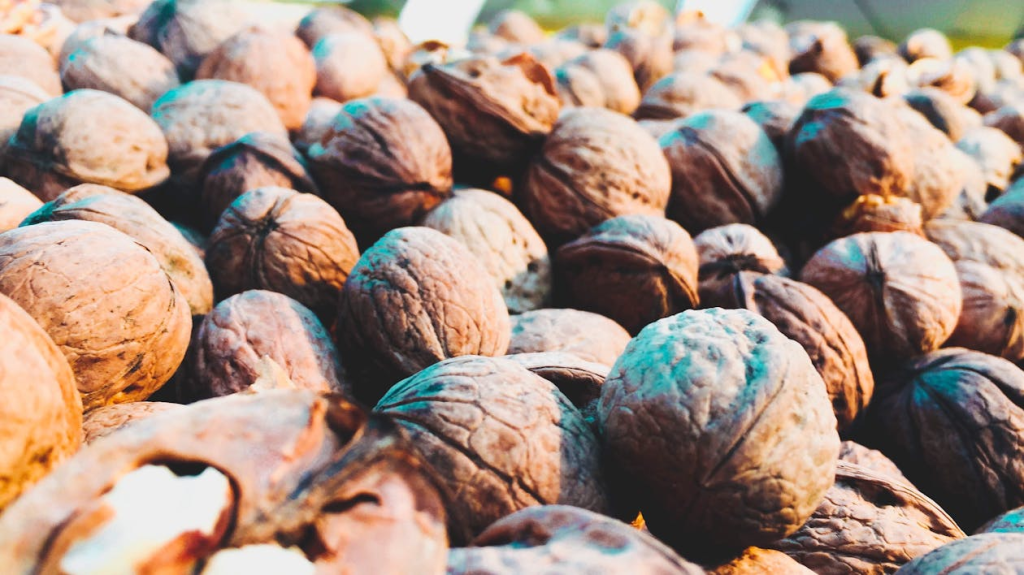
4. 🌰 Walnuts: Great for the Brain and Magnesium Levels
Magnesium: 158 mg per 100 grams
Rich in omega-3s and antioxidants, walnuts enhance brain health, reduce inflammation, and improve memory retention.
Best Ways to Eat Walnuts:
- Add to salads or smoothie bowls
- Create walnut milk at home
- Snack on them with dried fruit

5. 🥜 Peanuts: Affordable, Accessible, and Magnesium-Rich
Magnesium: 168 mg per 100 grams
Technically legumes, peanuts are high in magnesium, folate, and protein. They help manage blood sugar and support muscle function.
How to Include in Diet:
- Use unsweetened peanut butter in recipes
- Boiled peanuts are a healthy snack
- Add crushed peanuts to stir-fry or satay sauces

6. 🌰 Pistachios: Magnesium Plus Weight-Friendly
Magnesium: 121 mg per 100 grams
These green gems are high in potassium, fiber, and antioxidants. Pistachios are ideal for eye health, blood pressure control, and weight management.
Great Ways to Enjoy:
- Snack on unsalted in-shell pistachios
- Make pistachio pesto for pasta
- Add to baked goods or granola

7. 🌰 Hazelnuts: Magnesium + Skin Health Combo
Magnesium: 163 mg per 100 grams
Hazelnuts are rich in vitamin E and antioxidants, promoting glowing skin, better metabolism, and improved insulin sensitivity.
Smart Eating Ideas:
- Sprinkle crushed hazelnuts over cereal
- Use hazelnut butter on toast or crackers
- Make your own clean, healthy Nutella
Tips to Boost Magnesium Absorption
Simply eating magnesium-rich nuts isn’t enough. Here’s how to absorb more of it:
- Soak nuts overnight to reduce antinutrients
- Pair with vitamin B6-rich foods (e.g., bananas, avocados)
- Limit caffeine and alcohol which deplete magnesium
- Eat in moderation – 1 handful (20–30g) is sufficient per day
Magnesium in Nuts: Quick Comparison Chart
| Nut | Magnesium (mg / 100g) |
|---|---|
| Brazil Nuts | 376 mg |
| Almonds | 270 mg |
| Cashews | 260 mg |
| Peanuts | 168 mg |
| Hazelnuts | 163 mg |
| Walnuts | 158 mg |
| Pistachios | 121 mg |
Make Nuts Your Go-To Magnesium Source
Whether you’re trying to boost energy levels, reduce muscle cramps, improve heart health, or enhance cognitive function, magnesium-rich nuts are an easy and effective dietary solution. Versatile, portable, and delicious—they’re a snack you’ll never feel guilty about.
So, the next time hunger strikes, reach for a handful of nature’s superfoods and give your body the magnesium it craves.
Stay healthy. Stay nourished.
Food
Prime Hydration Drink: Hype or Hydrator?
In the quest for excellence, hydration plays a pivotal role. Enter Prime Hydration, a cutting-edge solution designed to propel athletes beyond their limits.

In the world of fitness and wellness, hydration is paramount. Whether you’re an athlete pushing your limits or simply someone striving for optimal health, staying hydrated is crucial for peak performance and overall well-being. Enter Prime Hydration Drink—a product that promises to revolutionize the way we hydrate. But amidst the marketing hype, it’s essential to delve deeper to discern whether Prime Hydration is truly a game-changer or just another overhyped beverage.
Table of Contents
I. Introduction
Attention Grabber
Picture this: A dedicated athlete, pushing through their workout with determination and drive. But suddenly, they hit a wall. Fatigue sets in, their muscles feel sluggish, and their performance suffers—all because of dehydration. It’s a scenario familiar to many who strive for peak performance in their fitness pursuits.
Introducing Prime Hydration
In the quest for excellence, hydration plays a pivotal role. Enter Prime Hydration, a cutting-edge solution designed to propel athletes beyond their limits. As we delve deeper into the world of Prime Hydration, you’ll discover how this innovative formula can revolutionize your approach to hydration and unlock your true potential.
II. What is Prime Hydration Drink?
Defining Prime Hydration
Prime Hydration isn’t just another sports drink; it’s a precision-engineered blend formulated to elevate your hydration game to new heights. Designed with one goal in mind—optimized hydration for peak performance—Prime Hydration stands as a beacon of excellence in the realm of fitness and athletics.
The Science Behind the Formula
At the heart of Prime Hydration lies a meticulously crafted formula backed by scientific research and innovation. By incorporating a synergistic blend of electrolytes, essential minerals, and hydration boosters, Prime Hydration ensures rapid replenishment of fluids and nutrients lost during intense physical activity.
Key Features
What sets Prime Hydration Drink apart from the competition? Firstly, its rapid absorption capabilities ensure that hydration is delivered swiftly to parched muscles, promoting sustained energy and endurance. Additionally, Prime Hydration boasts a meticulously balanced electrolyte profile, precisely calibrated to support optimal fluid balance and muscle function. And let’s not forget its refreshing taste—a delightful fusion of flavors that rejuvenates the senses with every sip.
III. The Importance of Hydration for Performance
Hydration is not merely a matter of quenching thirst—it’s a cornerstone of peak physical performance. Here’s why:
Regulating Body Temperature:
During exercise, the body generates heat, which must be dissipated to prevent overheating. Adequate hydration supports this process by facilitating sweat production, which helps regulate body temperature and prevent heat-related illnesses such as heat exhaustion or heatstroke.
Supporting Cardiovascular Function
Hydration is essential for maintaining optimal blood volume and circulation. Dehydration can lead to a decrease in blood volume, forcing the heart to work harder to pump blood to vital organs and muscles. This increased strain on the cardiovascular system can impair performance and increase the risk of cardiovascular issues during exercise.
Maintaining Energy Levels
Water is involved in virtually every metabolic process in the body, including the conversion of food into energy. Dehydration disrupts these processes, leading to decreased energy levels and fatigue. Proper hydration ensures that nutrients are efficiently delivered to cells, providing the energy needed to power through workouts and activities.
Consequences of Dehydration During Exercise
The effects of dehydration on athletic performance are profound and far-reaching. Fatigue sets in more quickly, leading to decreased endurance and diminished strength and power output. Dehydration can also impair cognitive function, coordination, and reaction time, increasing the risk of accidents and injuries during exercise.
Insights from Experts and Studies
Numerous studies have underscored the critical role of hydration in athletic performance. Research has shown that even mild dehydration—equivalent to a loss of just 2% of body weight—can significantly impair physical and cognitive performance. Experts recommend pre-hydrating before exercise, maintaining hydration during activity, and rehydrating afterward to optimize performance and recovery.
For example, a study published in the Journal of Athletic Training found that cyclists who were dehydrated by just 2% experienced reduced endurance and increased perceived exertion compared to those who were adequately hydrated. Similarly, a review published in Sports Medicine concluded that dehydration negatively impacts aerobic performance, strength, and power output across various sports and activities.
IV. How Prime Hydration Enhances Performance
Addressing Specific Hydration Needs
Prime Hydration Drink’s formula is meticulously crafted to meet the specific hydration demands of athletes during exercise. Unlike conventional sports drinks that may contain excessive sugars or artificial additives, Prime Hydration focuses on delivering essential electrolytes, minerals, and hydration boosters in optimal ratios. These key components work synergistically to replenish fluids lost through sweat, maintain electrolyte balance, and support sustained energy production.
Rapid Absorption for Quick Replenishment
One of the standout features of Prime Hydration is its rapid absorption rate, which ensures swift hydration replenishment during workouts. This is achieved through advanced hydration technology that enhances fluid uptake at the cellular level, allowing athletes to rehydrate more efficiently and effectively. Whether it’s a grueling training session or a competitive event, Prime Hydration delivers the hydration needed to stay at the top of your game.
Real-Life Success Stories:
I used to struggle with cramps and fatigue during long runs, especially in hot weather. Since incorporating Prime Hydration into my hydration routine, I’ve noticed a significant improvement in my performance and endurance. The rapid absorption and balanced electrolyte profile keep me feeling strong and hydrated, mile after mile.Sarah, Marathon Runner
As a CrossFit athlete, staying hydrated is crucial for maintaining energy and performance during intense WODs. Prime Hydration has become my go-to hydration solution because it delivers results. I feel more energized and focused throughout my workouts, and I’ve noticed a reduction in muscle cramps and fatigue. Prime Hydration has truly elevated my training to the next level.Jake, CrossFit Athlete
V. Hype or Hydrator?
Deconstructing the Ingredients List
- Electrolytes: Prime Hydration contains essential electrolytes such as sodium, potassium, magnesium, and calcium. These minerals play a crucial role in maintaining fluid balance, nerve function, and muscle contraction. Sodium and potassium, in particular, help regulate hydration levels by facilitating fluid absorption and retention in the body.
- Vitamins: Some formulations of Prime Hydration may include added vitamins, such as vitamin C or B vitamins. These vitamins can contribute to overall health and well-being, supporting immune function, energy metabolism, and antioxidant defense mechanisms.
- Added Sugars: Prime Hydration aims to minimize added sugars, opting for natural sweeteners or low-calorie alternatives like stevia or monk fruit extract. While some level of sugar may be necessary for flavoring, excessive sugar intake can lead to energy crashes and negative health effects. Prime Hydration prioritizes balance, offering a refreshing taste without compromising on health.
Analyzing Potential Benefits
- Electrolytes: By replenishing electrolytes lost through sweat, Prime Hydration helps maintain proper hydration levels, supports muscle function, and prevents dehydration-related fatigue and cramping.
- Vitamins: Added vitamins contribute to overall health and well-being, providing essential nutrients that support immune function, energy production, and recovery processes.
- Low Added Sugars: Prime Hydration’s minimal sugar content ensures sustained energy without the risk of energy crashes or spikes in blood sugar levels. This allows for consistent hydration and performance without compromising on health.
VI. Prime Hydration vs. Other Hydration Solutions
Comparing Prime Hydration to Traditional Sports Drinks and Plain Water
Prime Hydration Drinks vs. Traditional Sports Drinks
Traditional sports drinks often contain high levels of sugar and artificial additives, which can lead to energy crashes and dehydration in the long run. In contrast, Prime Hydration offers a healthier alternative with its low sugar content and natural ingredients. While sports drinks may provide some electrolytes, they often lack the precise balance found in Prime Hydration’s formula, making them less effective for optimizing hydration during exercise.
Prime Hydration vs. Plain Water
Plain water is undoubtedly essential for hydration, but it may not always be sufficient, especially during intense or prolonged exercise. While water provides hydration, it does not replenish electrolytes lost through sweat, which are crucial for maintaining fluid balance and supporting muscle function. Prime Hydration offers the best of both worlds—a hydration solution that delivers essential electrolytes and fluids quickly and efficiently.

Advantages of Prime Hydration Drink
Balanced Electrolyte Profile
Unlike many sports drinks that focus primarily on sodium and sugar, Prime Hydration boasts a meticulously balanced electrolyte profile that includes sodium, potassium, magnesium, and calcium. This comprehensive blend ensures optimal hydration and supports muscle function, endurance, and recovery.
Rapid Absorption
Prime Hydration’s advanced hydration technology allows for rapid absorption at the cellular level, ensuring that fluids and electrolytes are quickly delivered to thirsty muscles. This means faster hydration replenishment during workouts and better performance overall.
Natural Ingredients
Prime Hydration is made with natural ingredients and free from artificial flavors, colors, and preservatives. This makes it a healthier and more wholesome option compared to many traditional sports drinks on the market.
Addressing Concerns and Misconceptions
Concern: Sugar Content
Many people are wary of sports drinks due to their high sugar content, which can lead to energy crashes and weight gain. Prime Hydration addresses this concern by offering low sugar options that provide the necessary hydration without the excess calories.
Misconception: Hydration Isn’t Important
Some individuals may underestimate the importance of hydration, especially during exercise. Prime Hydration helps dispel this misconception by highlighting the critical role of hydration in performance and offering a convenient and effective solution for staying hydrated during workouts.
VII. Is Prime Hydration good for kids?
Inquiring about the safety of Prime Hydration for kids? The succinct response, as per experts, is affirmative – Prime Hydration is generally considered safe for children when consumed in moderation.
Malina Malkani is a pediatric registered dietitian is not recommended Prime Hydration for kids, and She suggest some healthier alternatives for maintaining hydration. She cites a few reasons why: 1. Use of Sugar Substitutes or Non-nutritive sweeteners (NNS), 2. Inappropriate Vitamin and Electrolyte Levels, 3. Unnecessary Ingredients, & 4. Misleading Marketing.
Dr. Christina Johns, a respected board-certified pediatrician situated in Annapolis, Maryland, emphasizes the importance of maintaining a balanced approach to hydration in children.
While it is not unsafe to consume Prime Hydration in moderation, I stand by the basics [of nutrition] and encourage plenty of water as the basis for hydration in children.Dr. Christina Johns
Dr. Johns, who serves as the official spokesperson for the American Academy of Pediatrics and holds the position of senior medical advisor at PM Pediatric Care, highlights a notable trend among children’s preferences for Prime Hydration. “Because sports drinks like Prime Hydration are designed to have a pleasant, sweet flavor, it is tempting to misuse them, drinking them casually on a daily basis,” she observes.
According to Catherine Gervacio, a registered nutritionist-dietitian for the E-Health Project in Arlington, Virginia, children “do not require the BCAAs found in Prime.” She elaborates, stating, “Children and teenagers are still in their growth and development stages, typically obtaining sufficient BCAAs from their diets.”
Melissa Boufounos, a certified holistic nutritionist in Ontario who specializes in sports nutrition, warns that Prime’s advertising is misleading.
Because of the celebrity and athlete endorsements of Prime Hydration, teen and adolescent athletes can be easily manipulated into believing these drinks support top athletic performance when they don’tMelissa Boufounos
Boufounos further notes that while Prime Hydration Drinks contain vitamins, this does not necessarily equate to healthiness. “Excessive supplemental vitamin A intake can be harmful,” she warns. “Prime Hydration provides 100% of the daily value of vitamin A. If children consume more than one per day, consume other foods fortified with vitamin A, or take a multivitamin providing vitamin A, they could surpass the upper limit.”
Both Gervacio and Boufounos identified potential risks associated with excessive electrolyte intake for children. “Prime Hydration Drinks aim to replenish electrolytes but are tailored to adult needs,” explains Gervacio. “Children and teens do not require such high levels, potentially leading to electrolyte imbalances affecting kidney function and blood pressure.”
Malina Malkani suggests parents consider these healthier and generally more cost-effective alternatives to ensure their children stay well-hydrated:
- Water should be the primary source of hydration for kids. Encourage your children to drink water throughout the day, especially when they are active.
- Homemade electrolyte solutions can be beneficial for children engaged in intense physical activities and in need of extra electrolytes. You can easily make homemade electrolyte drinks using water, a pinch of salt, and a touch of natural sweeteners like honey or 100% fruit juice.
- Fresh fruits such as watermelon, cucumber, and oranges have high water content and can aid in hydration while providing essential nutrients and fiber.
- Coconut water, naturally rich in electrolytes, is found inside coconuts. Prioritize brands without added sugars by checking labels.
VIII. Does Prime Hydration Drink any health risks?
Prime Hydration drink poses minimal health risks when consumed in moderation and as part of a balanced diet. However, excessive or improper consumption may lead to potential risks. Here are some considerations:
- Electrolyte Imbalance: Prime Hydration drinks contain electrolytes such as sodium, potassium, magnesium, and calcium, which are essential for bodily functions. Consuming excessive amounts of electrolytes can disrupt the body’s electrolyte balance, leading to potential health issues such as dehydration or electrolyte imbalances.
- Added Sugars: Some formulations of Prime Hydration drinks may contain added sugars or sweeteners. Excessive sugar intake can contribute to weight gain, tooth decay, and other health problems if consumed regularly in large quantities.
- Vitamin Overload: Prime Hydration drinks may contain added vitamins, which can be beneficial in moderation. However, excessive intake of certain vitamins, such as vitamin A, can be harmful to health.
- Caffeine Content: Some energy-focused variants of Prime Hydration drinks may contain caffeine. While moderate caffeine consumption is generally considered safe for most people, excessive intake can lead to caffeine-related side effects such as jitteriness, insomnia, or increased heart rate.
- Individual Sensitivities: Individuals with certain health conditions or sensitivities may need to exercise caution when consuming Prime Hydration drinks. For example, those with kidney issues may need to limit their intake of electrolytes, while individuals with diabetes should be mindful of added sugars.
Overall, Prime Hydration drinks can be part of a balanced lifestyle when consumed in moderation and as part of a healthy diet. However, it’s essential to be mindful of portion sizes, sugar content, and individual health considerations to minimize any potential risks to health. Consulting with a healthcare professional can provide personalized guidance based on individual health needs and concerns.
IX. Conclusion
In conclusion, Prime Hydration emerges as a game-changer in the realm of fitness and athletic performance. By addressing specific hydration needs with its balanced electrolyte profile and offering rapid absorption for quick replenishment, Prime Hydration empowers athletes to unlock their peak potential. Whether you’re a seasoned athlete or a weekend warrior, prioritizing hydration is essential for optimizing performance and achieving your fitness goals.
As you embark on your fitness journey, remember to consider your hydration needs during workouts and explore Prime Hydration as a solution. With its natural ingredients, low sugar content, and proven effectiveness, Prime Hydration offers a smarter and healthier approach to staying hydrated during exercise.
-

 Personal Care8 months ago
Personal Care8 months agoWhy Regular Massages Could Be the Game-Changer Your Body and Mind Crave
-

 Mental Health7 months ago
Mental Health7 months agoHow to Overcome Phobias: 15 Positive Psychology-Based Strategies That Really Work
-

 Lifestyle7 months ago
Lifestyle7 months agoWhen Is It Time To Get a Divorce? Emotional, Mental & Practical Signs to Know
-

 Fitness7 months ago
Fitness7 months ago6 Quick Morning Exercises to Burn Belly Fat All Day
-

 Mental Health7 months ago
Mental Health7 months agoWhat Is A Depression Attack? Symptoms, Causes & How To Cope With One
-

 Lifestyle7 months ago
Lifestyle7 months agoHow to Improve Egg Quality for Fertility: Science, Lifestyle and Expert Tips
-
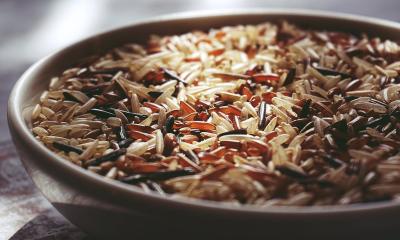
 Food7 months ago
Food7 months agoHealthy Rice Varieties: Nutrition and Health Benefits
-

 Personal Care7 months ago
Personal Care7 months agoHow to Reparent Your Inner Child: Healing and Self-Compassion






